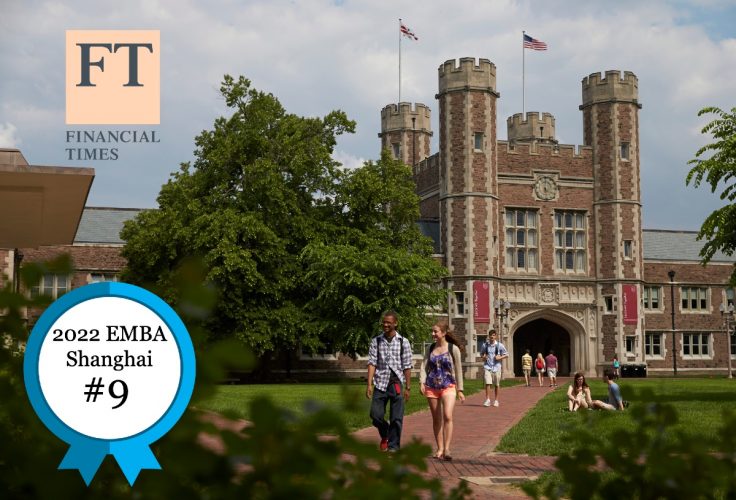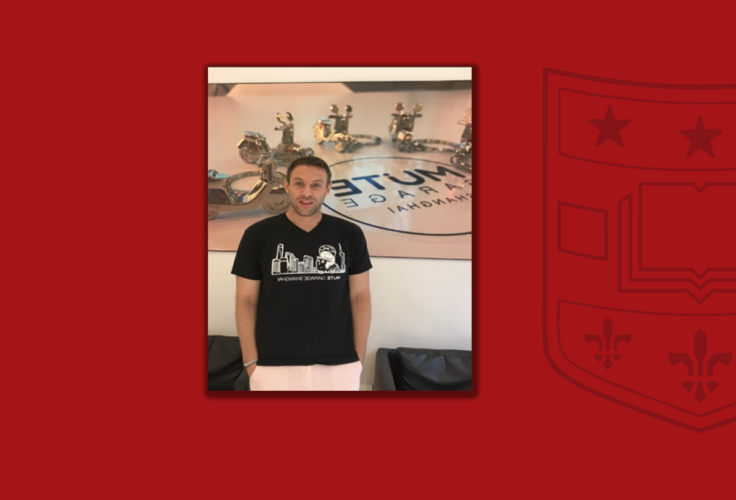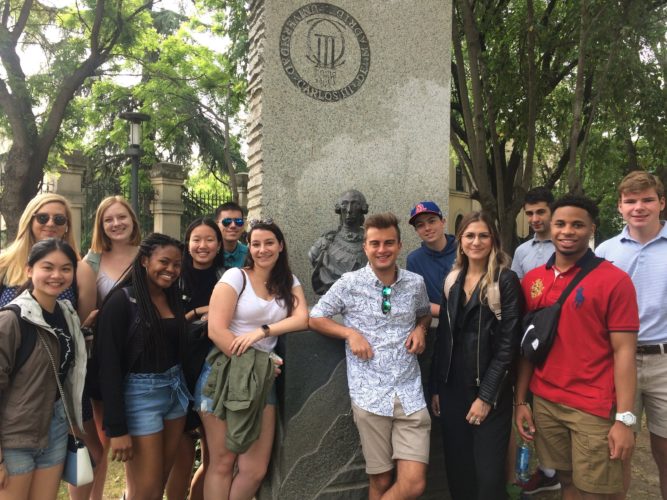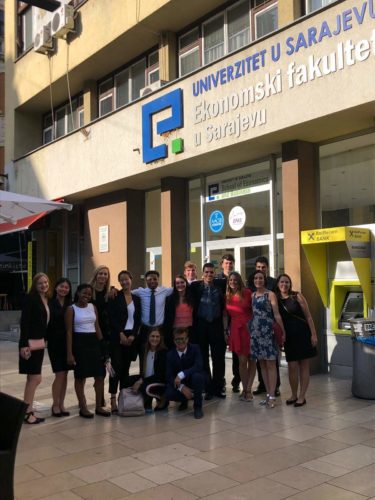Buoyed by strong representation from female students, strong international course experience and very strong salaries for graduates, WashU Olin’s Shanghai-based Executive MBA program rose substantially in the Financial Times’ latest ranking of similar programs for 2022.
The ranking, released in October, showed a marked increase in the program’s performance in the FT ranking over the previous two years. In 2021, Olin’s ranking suffered when pandemic-related issues prevented the program from enrolling a class in time. The year before, in 2020, Olin ranked 16, so its rise to the top 10—in the year of its 20th anniversary—was significant.
“Olin’s joint EMBA program in Shanghai with Fudan University has long been one of the gems of our school,” said Anjan Thakor, interim dean at WashU Olin. “I’m thrilled to see the hard work of so many, and the dedication of our students, recognized by the results of this ranking.”
Daniel Elfenbein, Olin professor of organization and strategy and associate dean for the EMBA-Shanghai program, acknowledged the “tremendous challenges for effectively engaging with students” through COVID-19.
“Thanks to the flexibility of our faculty, our students and our Fudan partners—and the incredibly hard work that each of these groups has put in—the EMBA-Shanghai program remains one that we can be tremendously proud of,” Elfenbein said. “These rankings validate that hard work, and they reflect the impact that our program continues to have in global executive education.”
Program on the vanguard
Olin was on the vanguard among business schools when it partnered with Fudan University in 2002 to launch the first-of-its-kind Executive MBA in China, placing American business faculty members in front of Chinese nationals to teach global business principles.
At the time, China was just entering the World Trade Organization, and its economy was the sixth largest in the world. Today, China’s economy is ranked second, and the program counts more than 1,000 students among its graduates.
Among the highlights of the 2022 Financial Times ranking:
- The incoming class in the joint Shanghai-based program was 42% female, placing Olin 15th among schools.
- Alumni salaries were strong, averaging $398,893, moving Olin up from 10th to sixth in that dimension of the ranking.
- In international course experience, Olin rose substantially, from 39th to 22nd.
- The WashU-Fudan program also showed continued strengths in its ranking for work experience (10th) and its Financial Times research ranking (eighth).
“The fact that our program continues to soar is a testament to the commitment and passion of everyone involved—students, staff and faculty,” said Markus Baer, professor of organizational behavior and Olin’s vice dean of executive education. “We are excited about the future and what we can accomplish in the years to come.”
One area of opportunity centered in curriculum content hours focused on environment, sustainability and governance issues. Nearly 13% of Olin’s curriculum centers on those issues—similar to previous years—but its ranking in that category fell, indicating an increase in curriculum hours among other schools.
Northwestern University, the China Europe International Business School, Tsinghua University/INSEAD, HEC Paris and ESCP Business School took the top five spots in the 2022 ranking. Rounding out the top 10 were programs including a three-way joint program among HEC Paris, New York University and the London School of Economics; Massachusetts Institute of Technology; the University of Chicago; WashU Olin; and the University of Navarra.







